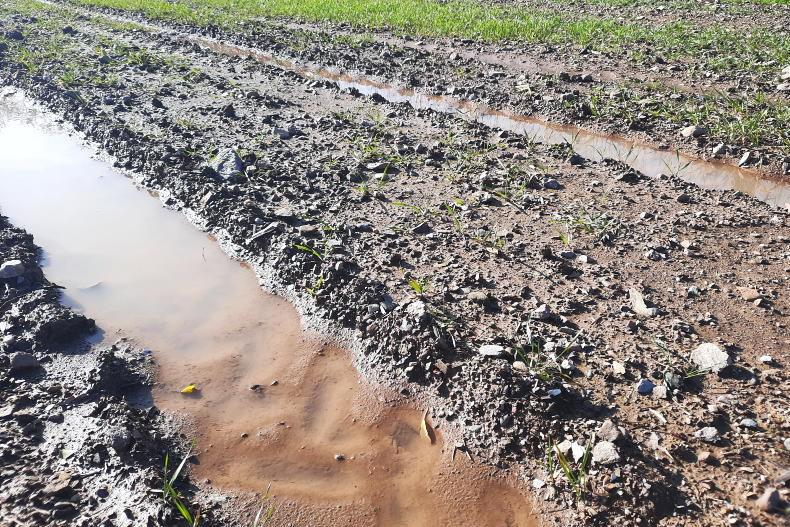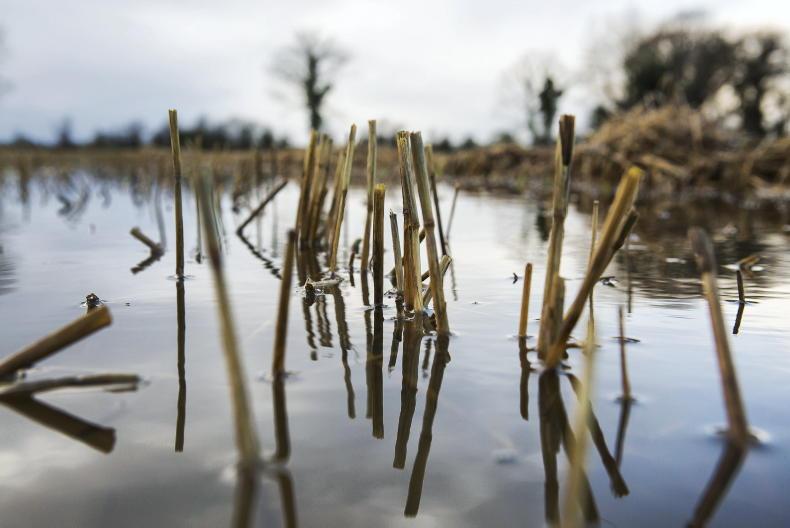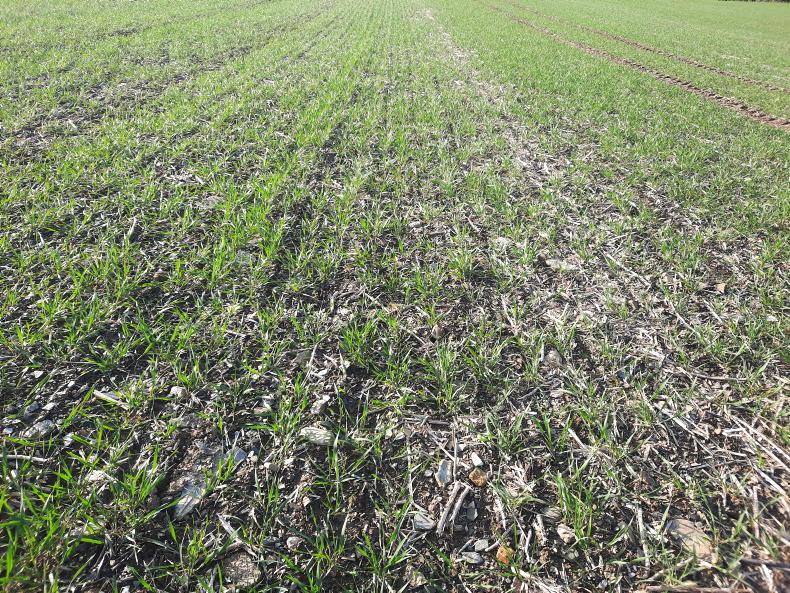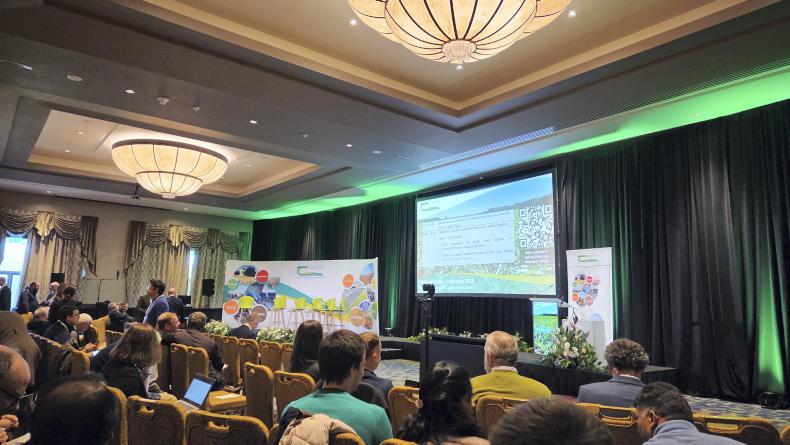Weather and fieldwork
The rain continued this week, and fields freshly sown are now saturated with water lying in many places. If possible, try and redirect some of this water, but this is easier said than done.
Current ground conditions mean jobs like herbicide application and slug pellet application cannot be done for most farmers. However, some places are drier, with some farmers working in the northwest this week digging potatoes, for example.
Land is extremely wet now, but there is still time for it to dry out, and opportunities to plant late into the year and into the new year for crops like wheat and oats.
Having more winter crops in will help to divide out workload during the year and at harvest time, which is very important, so don’t rule out planting more winter crops just yet.
Get your crop records up to date on what you have done so far. Record sowing dates, seed rates and cut seed labels from bags to have them for your records.
You should also finish up your 2023 records before starting off the 2024 records. Harvest dates, yields and delivery locations should all be recorded. Plant protection product records should also be completed if this hasn’t already been done.
ACRES
The final date to plant catch crops under ACRES is 31 October. No doubt farmers still have crops to plant, but this is most likely still not possible due to ground conditions and will have to be given a pass. We will keep you updated with any information from the Department of Agriculture on this.
Unharvested crops
It might be no harm for farmers with unharvested crops to take pictures of those crops. Turn the location on, on your phone and, if you can, include a landmark like a tree, ESB pole or building in the picture.
It may not be needed, but similar to having pictures for straw chopping and incorporation it may be good to have if a payment is announced. However, there is no guarantee of funding coming from the Department.
If you do attempt to disc the crop or tackle it in a few weeks or months, you will have evidence of the crop.
Grass weed conference
Teagasc will host its first ever Grass Weed Conference this November. The conference comes at a time when more evidence of resistance to herbicides is being seen in grass weeds, and as incidences of blackgrass and other problem weeds increase on farms.
The conference will display findings from the Enable Conservation Tillage Project, and farmers who participated in the project will contribute on the day.
The conference will be available to view online or you can attend in person at the Killashee Hotel, Naas, Co Kildare on Wednesday, 8 November at 10.30am. Entry is free. You can register for the conference on the Teagasc website.









SHARING OPTIONS